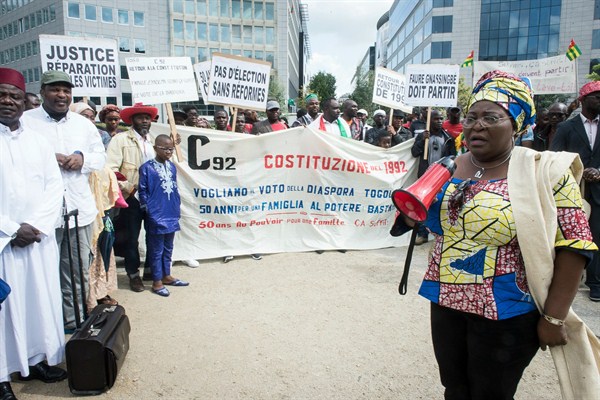LOME, Togo—A pediatric inpatient ward in the Sylvanus Olimpio University Teaching Hospital of Lome, the capital of Togo, sat vacant for much of February. The water had stopped running, and staff were short several supplies: a pair of scissors, a rolling cart, a blood pressure cuff to fit children’s arms. Nurses packed patients into a separate ward, where they could be prepared for discharge before hospital staff went on strike again. The smallest patients lay three to a bed, their mothers waiting on makeshift stools for a doctor. The more desperate wandered the complex in search of help. A woman lay sobbing, amid a heap of sandals in the breezeway.
Togo’s ailing public health system has been this way for a while. But on April 23, a red carpet was laid at the public hospital entrance to welcome Faure Gnassingbe, the country’s embattled president, who appeared composed despite facing persistent protests, including strikes by the very doctors and nurses he would meet that day, and renewed calls for his removal after talks with the opposition stalled in March. The grand entrance made him seem oblivious to the stinging criticism his administration has faced for years of negligence on public health. But three days after touring the complex and meeting staff, Gnassingbe uncharacteristically announced significant investments in the health-care system’s management and infrastructure. He vowed to build two new major hospitals that could handle complex cases and four nursing schools around the country.
Pervasive unrest in Togo, the small West African nation wedged between Ghana and Benin, is apparently starting to push Gnassingbe into action—if not in the way protesters hoped. Most still just want him to step down, and his overdue attention to the country’s medical system is no simple antidote to years of lost trust.

